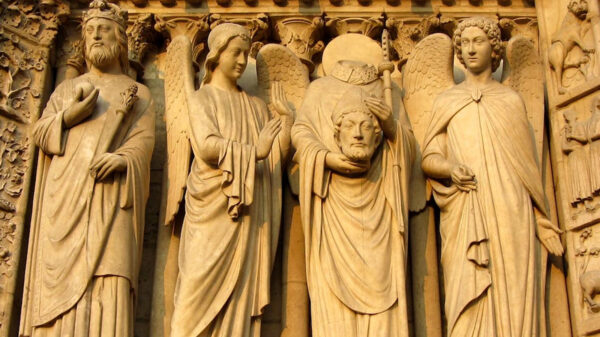
The Apostles Knew the Difference Between Ministry and Martyrdom
The Book of Acts and the letters of Paul provide us with a glimpse into the lives of the Apostles. The Apostles were clearly pursued and mistreated, and the New Testament narratives and letters describe their repeated efforts to avoid capture. The Apostles continually evaded capture in an effort to continue their personal ministries as eyewitnesses. The New Testament accounts describe men who were bold enough to maintain their ministry, but clever enough to avoid apprehension for as long as possible.
The Apostles Knew the Difference Between a Consequence and a Goal
These early eyewitnesses were fully aware of the fact that their testimony would put them in jeopardy, but they understood this to be the consequence of their role as eyewitnesses rather than the goal. That’s why they attempted to avoid death as long as possible. While it may be true that later generations of believers wanted to emulate the Apostles through an act of martyrdom, this was not the case for the Apostles themselves.
The Apostles Knew the Difference Between Fame and Infamy
It’s one thing to be famous, but another to be famously despised. Some of us have attained widespread fame based on something noble (like Mother Teresa). Some of us have attained widespread fame because of something sinister (like Jerry Sandusky). The apostles were roundly despised by their Jewish culture as a consequence of their leadership within the fledgling Christian community. If they were lying about their testimony to gain the respect and admiration of the culture they were trying to convert, they were taking the wrong approach. The Apostles only succeeded in gaining the infamy that eventually cost them their lives. This was obvious to them from the onset; they knew their testimony would leave them powerless to stop their own brutal martyrdom.
As I examine the motives and consequences related to the testimony of the Apostles, I still find their martyrdom to be one of the most powerful evidences related to the veracity of their testimony. Click To Tweet
As I examine the motives and consequences related to the testimony of the Apostles, I still find their martyrdom to be one of the most powerful evidences related to the veracity of their testimony. Think about it for a minute: twelve designated eyewitnesses traveled the known world to testify to the Resurrection. Not a single one of them recanted their testimony. Not a single one of them lived longer because of their testimony. Not a single one benefited financially or relationally. These folks were either crazy or committed, certifiably nuts or certain about their observations. It’s time to take the testimony of the Apostles seriously.

J. Warner Wallace is a Dateline featured Cold-Case Detective, Senior Fellow at the Colson Center for Christian Worldview, Adj. Professor of Christian Apologetics at Talbot School of Theology, Biola University, author of Cold-Case Christianity, God’s Crime Scene, and Forensic Faith, and creator of the Case Makers Academy for kids.
Subscribe to J. Warner’s Daily Email
J. Warner Wallace is a Dateline featured cold-case homicide detective, popular national speaker and best-selling author. He continues to consult on cold-case investigations while serving as a Senior Fellow at the Colson Center for Christian Worldview. He is also an Adj. Professor of Christian Apologetics at Talbot School of Theology, Biola University, and a faculty member at Summit Ministries. He holds a BA in Design (from CSULB), an MA in Architecture (from UCLA), and an MA in Theological Studies (from Gateway Seminary).





































